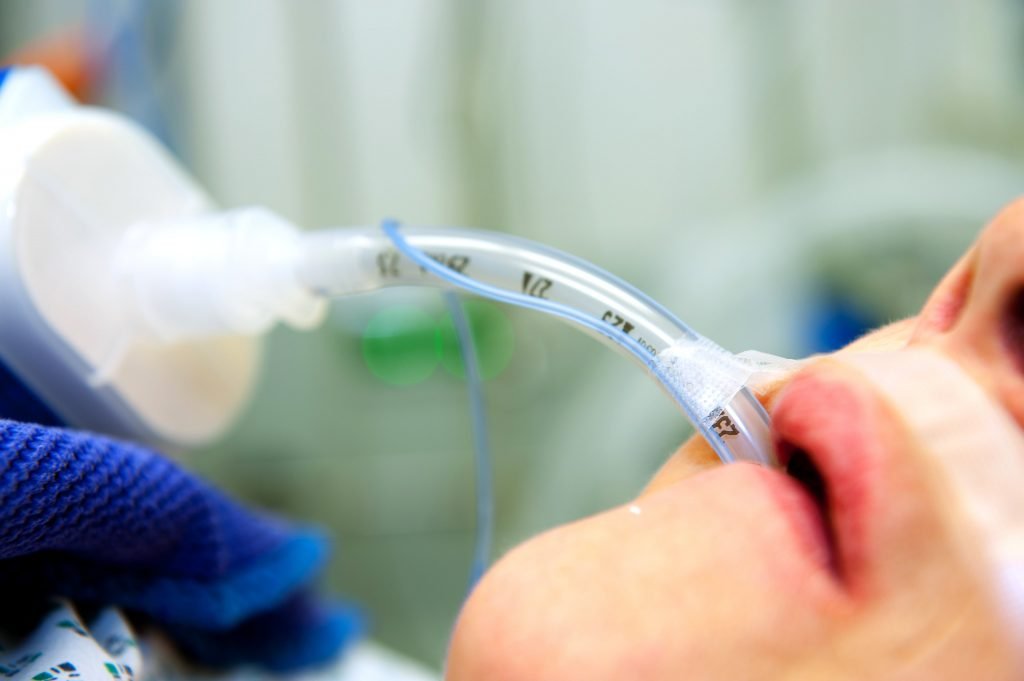The chances for paralyzed patients to survive on ventilators, like others, stand over a pyramid of factors including overall health of the patient, quality of services provided and age whereas significant cause of paralysis sits at the top. All aforesaid factors contribute well to decide the life expectancy and weaning off time of the patient.
Ventilation is needed only when paralysis affects the respiratory muscles which is generally caused by spinal cord injury. Ventilators undoubtedly increase life expectancy of patients, but condition is highly unpredictable when it comes to paralyzed patients. Also, the use of ventilation can cause major complications impacting the ultimate prognosis.
Factors Affecting the Survival Rate of Paralyzed Patients On Ventilator
There are some key factors that directly impact the survival rate of paralyzed patients after shifting to artificial breathing mechanism. These factors alone or when combined can cause obstruct the recovery process of the patient. However, patient is put on ventilator when respiratory muscles malfunction or stop working resulting in other complex situations asking for ongoing care.
1- Underlying Cause of Paralysis
There are certain ways a person can fall prey to physical disability, partially or completely. The culprit must be some major injury of spinal cord, neurological disease, stroke or even some brain trauma. The survival rate of patients graphs up and down with severity of these conditions. It is generally observed that 50% of the paralyzed patients show life expectancy of one year while average survival rate of patients going through neurological conditions like ALS, which gradually impairs respiratory muscle function, spans around 2 to 5 years after ventilation is started. However, a lower tendency is seen in patients with stroke and major brain damage.
2- Age and Health of Patient
Age is the general key player in determining the level of medical care and survival rate of any patient. The younger patients are generally seen showing better survival rate due to improved physiological resilience. According to studies shown in American Journal of Respiratory and Critical Care Medicine, the survival rate among mid-aged (65 years or above) paralyzed patients drops to 40% as compared to younger patients who show better recovery. However, this ratio in elderly patients even worsens when coupled with other health concerns.
3- Quality Care Provided To Paralysis Patient On Ventilator
Instant and quality medical care provided makes it easy for patients if not to survive longer but in a better way. Paralyzed patients having disabled or malfunctioned respiratory muscles can show better outcomes when exposed to specialized and high-quality medical care including timely ventilation and proper medication. It is a good practice to expose patients to multidisciplinary approach after consulting pulmonologists for sure but also involving physiotherapists, neurologists and rehabilitation experts as well. Timely management of upcoming complications like respiratory issues, sores and infections, along with proper hygiene care, not only increases the survival rate of ventilated patients but also decreases the chances of potential pains and future medical threats.
4- Time Dependence on Ventilators
Ventilator is a savior for respiratory impaired patients however, extended time dependency on ventilators can more likely ruin the probability of survival of such patients. Increased duration of ventilation often leads to VAP, lung function failure and many other medical conditions including respiratory muscle atrophy, blood clots and bed sores putting patient in worse condition than earlier. It is proven that the survival rate of paralyzed patients weaned off the ventilators after few weeks show increased survival rate than those gone for extended mechanical ventilation.
Summary
In a nutshell, the chances of survival for paralyzed patients increase when immediately provided with ventilation however, this condition is bound with many other factors. The survival rate usually varies depending on age and condition of the patient coupled with urgent medical care provided to him. However, specialized care, timely intervention and wise management of future complications can bring desired and better outcomes.
Looking For Best Ventilator Care Facility in Vancouver, WA, USA?
BetterOptions is the best facility in Vancouver, WA, USA where long-term care of ventilator dependent patients is provided. All medical and nursing staff is available 24/7 with homelike settings and friendly environment. Call Us Now (+01) (360) 607-8028) OR Send An Email for more information.


